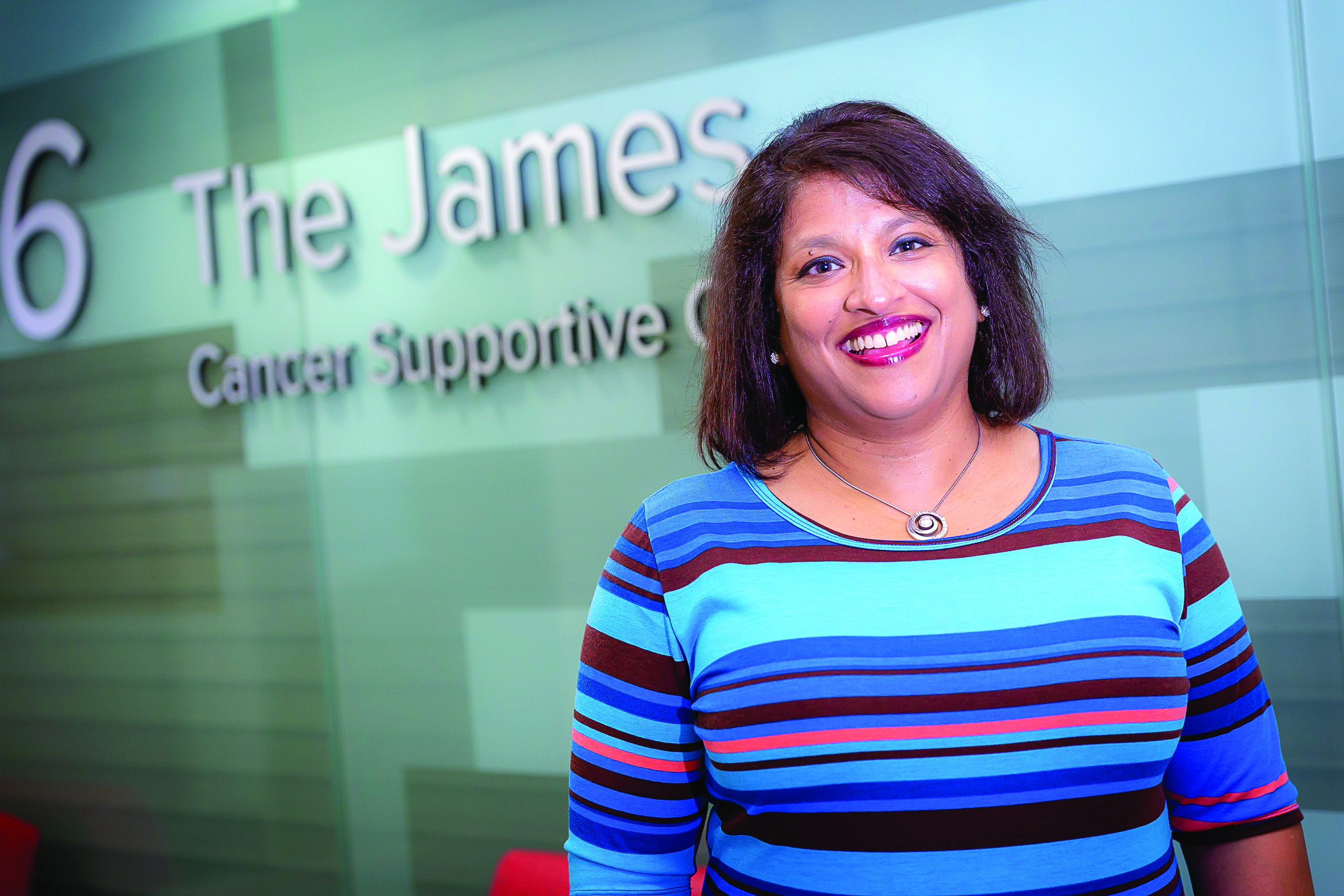Caring for Patients Through All Levels of Survivorship
The medical terms for living with and beyond a cancer diagnosis identify patients as entering the survivorship phase of their cancer journey. However, as science continues to develop new treatments responsible for extending patients’ lives, new levels of survivorship are being determined.
For many patients, survivorship discussions and future planning can begin as early as day one of diagnosis. Oncology nurses are at the forefront of patient-centered cancer care and are ensuring that patients with all prognoses are able to plan for their future accordingly—whatever that future may bring.
Understanding Levels of Survivorship
Addressing patients’ quality of life, health promotion, and long-term care doesn’t begin after they’ve completed their treatment cycle. Managing the issues associated with survivorship can start before the first treatment appointment. Currently, three levels of survivorship outline the points during the cancer journey in which patients may face challenges associated with their long-term care.

For ONS member Rupa Ghosh-Berkebile, MS, APRN-CNP, AOCNP®, nurse practitioner at the Arthur G. James Cancer Hospital and Richard J. Solove Research Institute in Columbus, OH, every patient with cancer enters into survivorship on the day of their diagnosis. From there, they can progress through acute, extended, and permanent stages of survivorship.
“The acute phase of survivorship begins at diagnosis and generally concludes at the end of initial cancer treatment where the focus is on treating the cancer,” Ghosh-Berkebile says. “Extended survivorship begins at the end of initial cancer treatment and includes the months to early years after treatment. Here, the focus is on the immediate effects of cancer and treatment and can include surveillance, maintenance, and/or consolidation therapy.”
She adds that the concept of permanent survivorship begins several years after treatment and can vary depending on cancer type. “The risk of recurrence can decrease, and the immediate effects of cancer and cancer treatment may be resolved,” Ghosh-Berkebile says. “The focus shifts to long-term effects and risks of cancer therapy.”

ONS member Adrienne Vazquez, MSN, ACNP-BC, AOCNP®, director of the clinical survivorship program at the University of Miami Sylvester Cancer Center in Miami, FL, says that cancer survivorship is a process for patients and practitioners. Her survivorship clinic provides support and resources for patients in any phase of survivorship.
“Our program looks at all levels of survivorship. For us, the acute stage focuses on how the patient is doing in relation to treatment. But extended survivorship is where we see most patients coming to our survivorship clinic for the first time,” Vazquez says. “We’re looking to help them understand the effects of their cancer and the treatments they received, provide patient educational resources, and begin to shift the focus on their wellness. This is our main area of focus and where we provide interventions and resources.”
Both Ghosh-Berkebile and Vazquez stress the importance of including all patients in the survivorship spectrum. Survivorship involves more than just patients with an end date for their treatment.
“All three of the phases refer to patients treated with curative intent. However, cancer survivorship is a spectrum, and patients may live with intermittent periods of cancer recurrence and active treatment,” Ghosh-Berkebile says. “Patients may live cancer-free for many years and develop a late recurrence, patients may develop a secondary cancer, or patients may live with advanced or chronic cancer. It’s important to recognize all patients as survivors and understand that some will likely be on some sort of continuous therapy for the remainder of their lives.”
Incorporating Patients’ Individual Needs
Survivorship care plans can be a particularly helpful tool when developing a patient’s individualized path through survivorship. But like any tool in the healthcare profession, it must be adaptable and tailored to each patient’s individual needs.
“We see any patients referred to our clinic, whether they’re an acute survivor or a long-term, chronic patient,” Vazquez says. “We’ve created our own survivorship care plans in our electronic medical record (EMR) that are easily adjustable. Depending a patient’s diagnosis and prognosis, we can remove certain information like end-of-treatment dates, or we can shift the plan to focus on wellness and supportive care. We use it as a way to educate and empower our patients at all levels of survivorship. We continually update the care plan in our EMR, because it’s all about meeting your patients wherever they’re at.”
Meeting Accreditation Standards
Implementing survivorship care plans is vital, not only to individualize a patient’s future steps but also to adhere to accreditation standards. Both Vazquez and Ghosh-Berkebile note the importance of Commission on Cancer accreditations for their programs.
“As part of accreditation for the Commission on Cancer, survivorship care plans should include a list of all cancer providers involved in their care, a summary of all treatments received, a plan for surveillance, signs and symptoms of recurrence, potential late and long-term therapy effects, preventive care, and healthy lifestyle guidelines,” Ghosh-Berkebile says. “Scheduling a dedicated end-of-treatment visit to review and deliver this documentation would be an effective way to honor the milestone of completion while also reassuring patients that the oncology team is there to address any supportive care needs that may come up as they learn to live beyond cancer. This could help ease the transition and uncertainty that may arise at the end of treatment.”
Involving the Interprofessional Team
As with many elements of successful oncology care, incorporating interprofessional team members and focusing on individual patient support can lead to positive outcomes and successful survivorship care.
“When a patient is referred to our clinic, we do an individualized holistic assessment to identify unmet needs, then make appropriate referrals to services within our clinic or the medical center,” Ghosh-Berkebile says. “We have an advanced practice provider-led multidisciplinary clinic that includes oncology rehabilitation, psychosocial oncology, expressive arts, fertility preservation and reproductive health, and sexual health, in addition to providing survivorship care plans for patients who have completed active treatment and are entering extended survivorship.”
Addressing Survivorship Challenges
“Many patients will experience chronic pain, fatigue, loss of function, cognitive dysfunction, sexual dysfunction, and depression in the short and sometimes, long term. This is only a partial list of the issues that potentially come up,” Ghosh-Berkebile says. “Cancer touches every aspect of a patient’s life: physical, psychological, social, spiritual, and financial. Patients aren’t prepared for the impact that cancer and treatment have on their lives, especially after finishing treatment. This can lead to some frustration when they realize that life will not return to normal right away, or even to the normal they knew before.”
Oncology nurses must account for the individuality of a patient’s experience—especially when it comes to end-of-treatment celebrations or cultural differences—to help ensure that patients enter their different levels of survivorship without issue.
“One of the most common things I hear from patients in our clinic is that they feel guilty. They feel guilty that they’ve done well and there are others who aren’t so lucky,” Vazquez says. “These patients face real challenges during their time as extended survivors, including a fear of recurrence. Cultural differences also impact the way we, as oncology nurses, address survivorship with patients. In South Florida, many of our patients don’t want to talk about their cancer or celebrate finishing treatment. It is important to be sensitive to heritage and cultures that don’t embrace this. Some of them just don’t want to jinx it, and you have to find ways to account for that.”
Creating a Survivorship Subspecialty
“It’s vital to remember that survivorship and supportive care needs start at diagnosis, regardless if a patient’s treatment goal is cure or palliation,” Ghosh-Berkebile says. “All patients are considered survivors, although they may not refer to themselves in those terms. Every cancer survivor is unique, requiring personalized survivorship care. Assessing each individual’s needs and identifying the best resources available to help address them is crucial to improving their quality of life and wellness through their cancer journey.”
For Vazquez, caring for patients throughout survivorship is becoming a unique aspect of oncology nursing. As the number of patients living with and beyond their diagnoses continues to grow, so too will need for qualified oncology nursing professionals to manage their care.
“Survivorship for patients with cancer is a huge aspect of their care,” Vazquez says. “It’s really becoming a field or specialty of its own in oncology—that’s how I see it. I challenge nurses to support their cancer survivors, ask questions, and have those uncomfortable conversations. That’s how you can get to know them, their treatments, their diagnoses, and their challenges. That’s how you get to know their stories.”
